Cleanup crew hauls tonnes of junk out of Alouette River
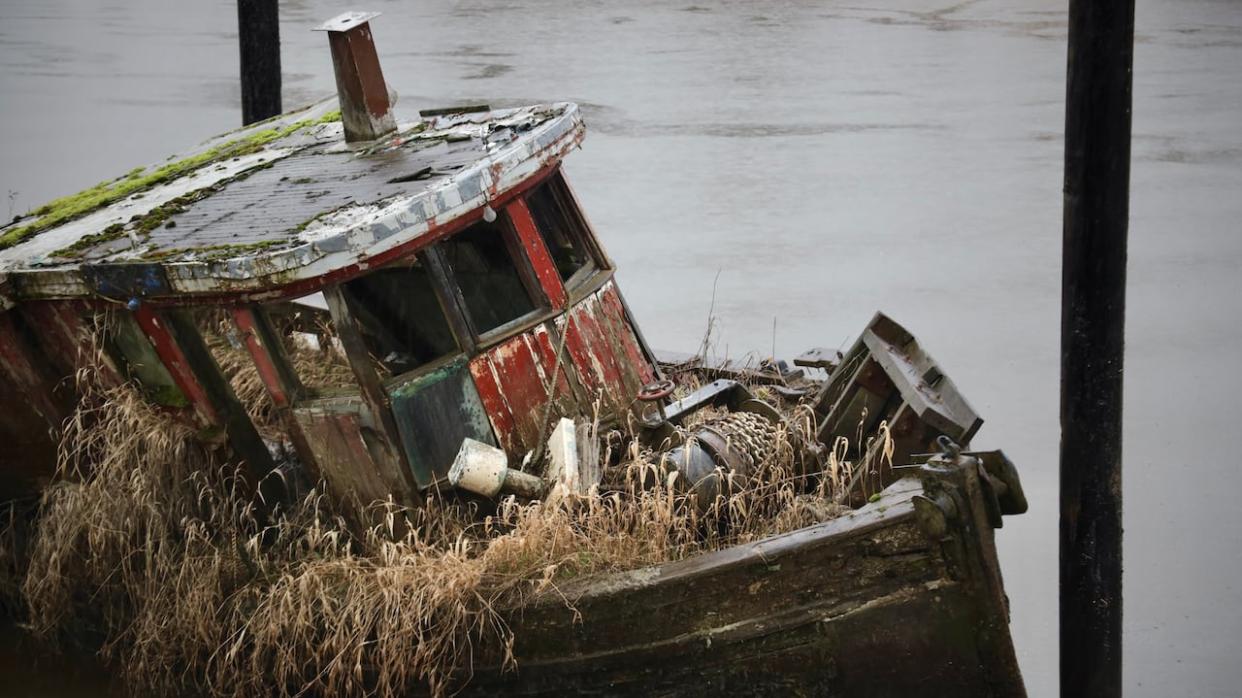
Adam Coolidge scrambles over a derelict boat in the Alouette River to attach a heavy sling to the hull. The boat is mostly below the surface, with just the corner of the cabin emerging to give a hint of how long it's been since it was last afloat.
Coolidge is wearing a big red dry suit, but says it's more for protection from the rain than his occasional splashes into the river.
His small crew has been working a stretch of the lower Alouette River in Pitt Meadows all week. They have a boat in the water and a big excavator on shore.
Coolidge and his company, Cold Water Divers, have been contracted by Transport Canada to clean decades worth of abandoned junk out of the river as part of the federal agency's Navigation Protection Program.
Before the intervention, this short stretch of the river was littered with abandoned boats, docks, boathouses, and other debris. The garbage has been leaching contaminants into the ecosystem for years.
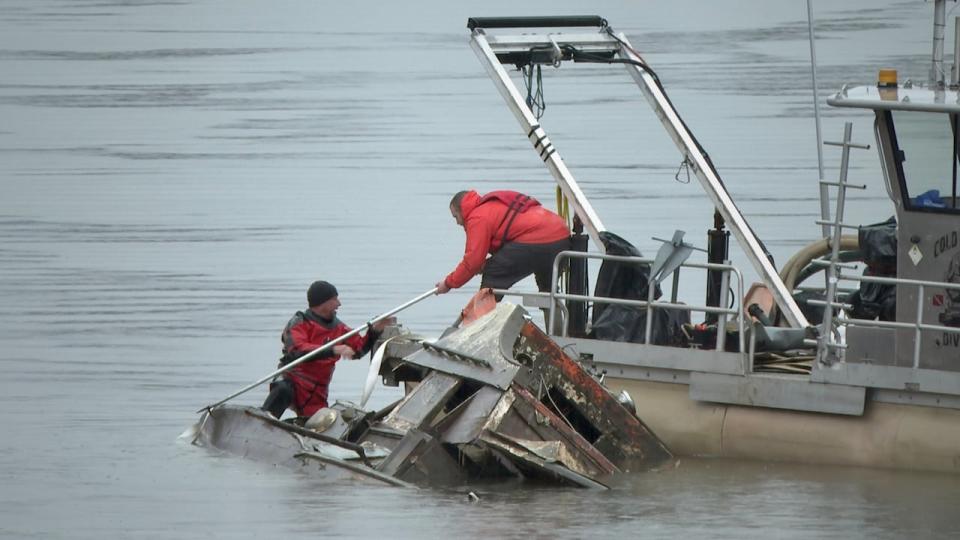
Adam Coolidge, owner of Cold Water Divers, climbs around a submerged boat as a member of his crew assists. (Rafferty Baker/CBC)
Using the excavator's 18-metre arm, the crew drags the boat to the shore, where it's broken apart and loaded into a deep disposal bin.
Coolidge says each bin can hold 10 to 12 tonnes. By Wednesday they had already filled 14 of them, all of which were hauled to a sorting facility. Most of what's removed from the river will end up in the landfill.
The owner of the Brentwood Bay-based diving company estimated that by the end of the week, when the job is complete, they will have taken about 200 tonnes of junk out of the river.
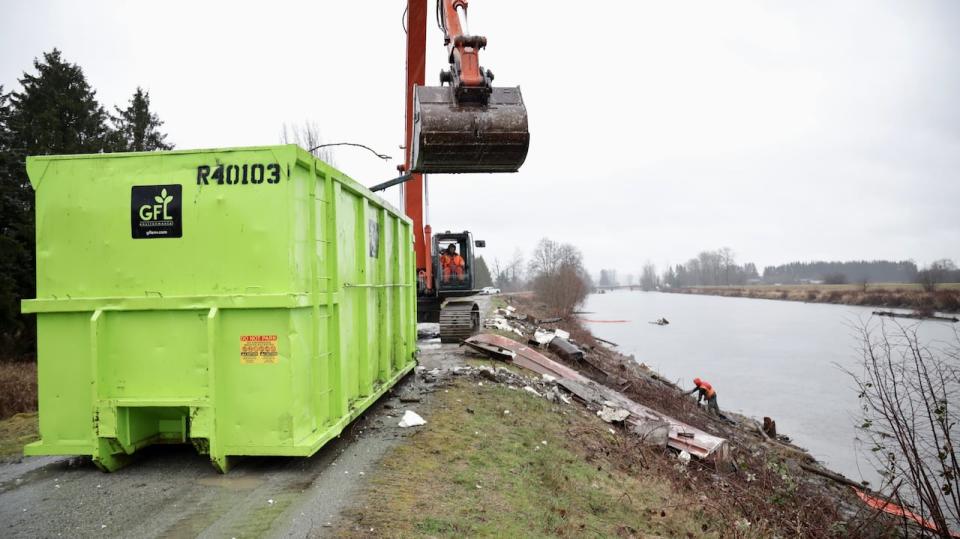
The contracted crew uses a large excavator to haul heavy junk from the Alouette River and into a disposal bin. (Rafferty Baker/CBC)
'Environmental disaster'
Mark Caros was on the shore watching some of the work in the rain on Wednesday. He's on the board of directors at the Alouette River Management Society. It was Caros and his group that started writing emails and making phone calls more than a year ago to advocate for this cleanup project.
"There's fibreglass boats with engine compartments, with fuel tanks, transmissions, all sorts of contaminants, fibreglass and Styrofoam on board, so it became a little more alarming to me over time," he said.

Mark Caros, with the Alouette River Management Society, speaks with Adam Coolidge on Wednesday. (Rafferty Baker/CBC)
Caros grew up along the Alouette River, swimming, kayaking, and cycling along the dikes. Some of the junk in the water had been there long before that. It was concentrated along the last few hundred metres of the Alouette, before it drains into Pitt River, then the Fraser, and eventually the Pacific Ocean.
"Any of the ecosystem — salmon, the entire fishery — has to navigate this environmental disaster that's at the end of the river," he said.
Transport Canada funding the cleanup
Transport Canada failed to answer several questions from CBC News before deadline, including how much this particular cleanup project is costing, but said in a brief written statement that along with the structures and boats being removed from the river, 17 marine piles have been taken out.
Coolidge explained that this is to prevent people from tying their boats up, and potentially abandoning them in the future.
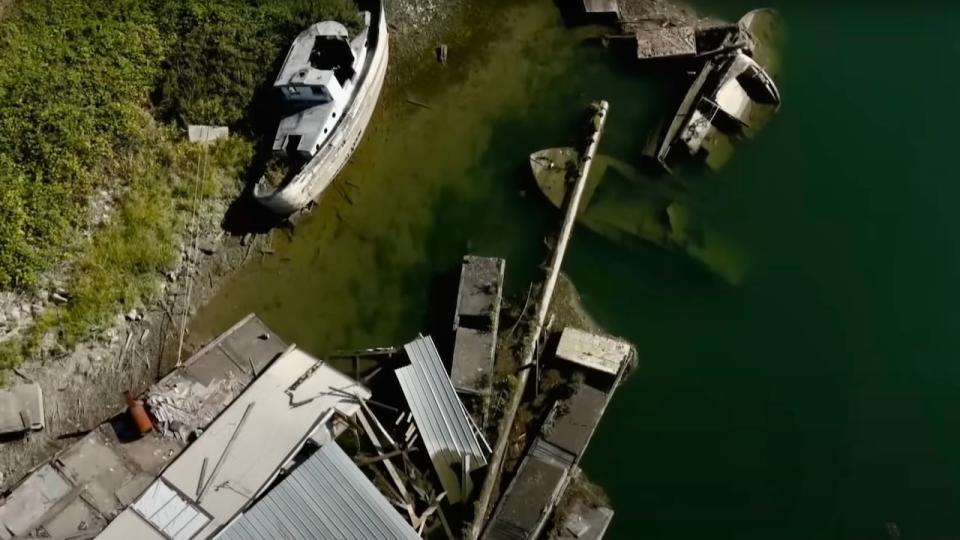
An aerial photo taken in October 2023 shows multiple sunken and derelict boats on the Alouette River, along with a damaged boathouse, docks, and other junk. (CBC)
Pitt Meadows Mayor Nicole MacDonald said in a written statement that officials had "heard growing concern from the community about the safety and environmental impacts that these abandoned structures have on our beautiful waterways."
"We are grateful to local residents and organizations who have played a key role in advocating for assistance and funding to see this work completed," said MacDonald.
Part of much larger problem
For Coolidge, the Alouette River cleanup project is just a week's work, before shipping out to another spot along the B.C. coast, where decades worth of similar marine junk has accumulated.
"Cleaning it up, it does feel good, right? It's kind of sad that it has to get to this level before someone says, 'Hey, what's going on here?' But it's everywhere," he said.
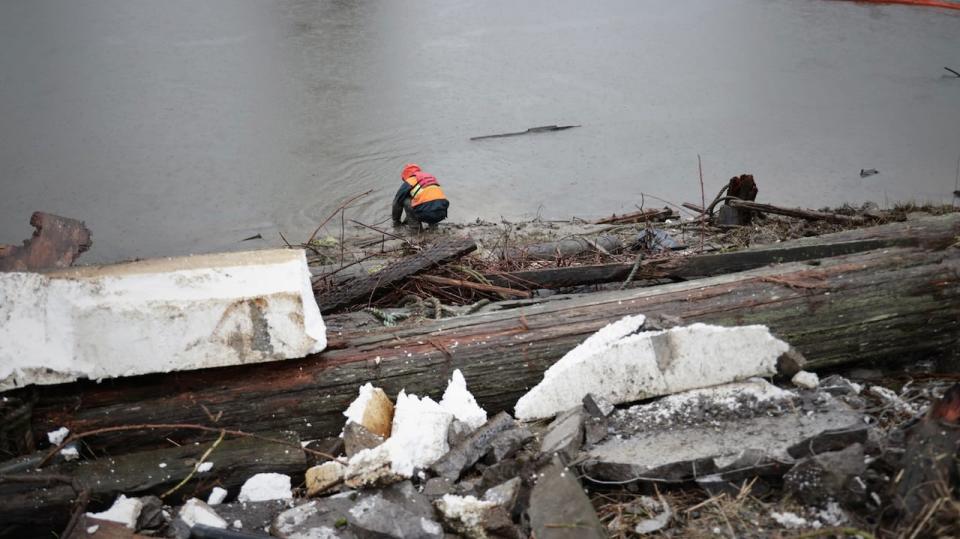
A member of the Cold Water Divers crew picks small pieces of garbage out of the river, adding it to the piles on the shore that will be eventually hauled away in disposal bins. (Rafferty Baker/CBC)


